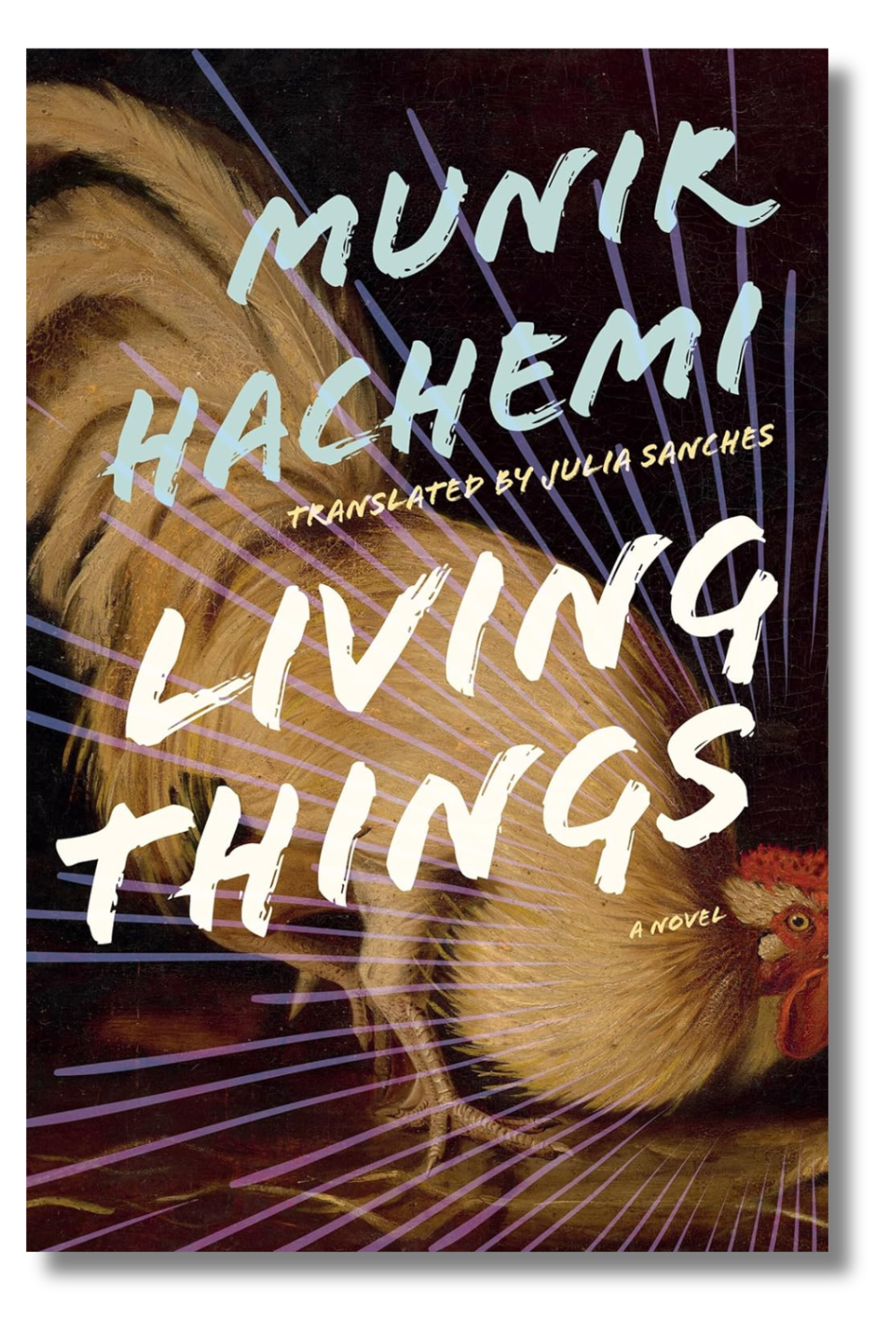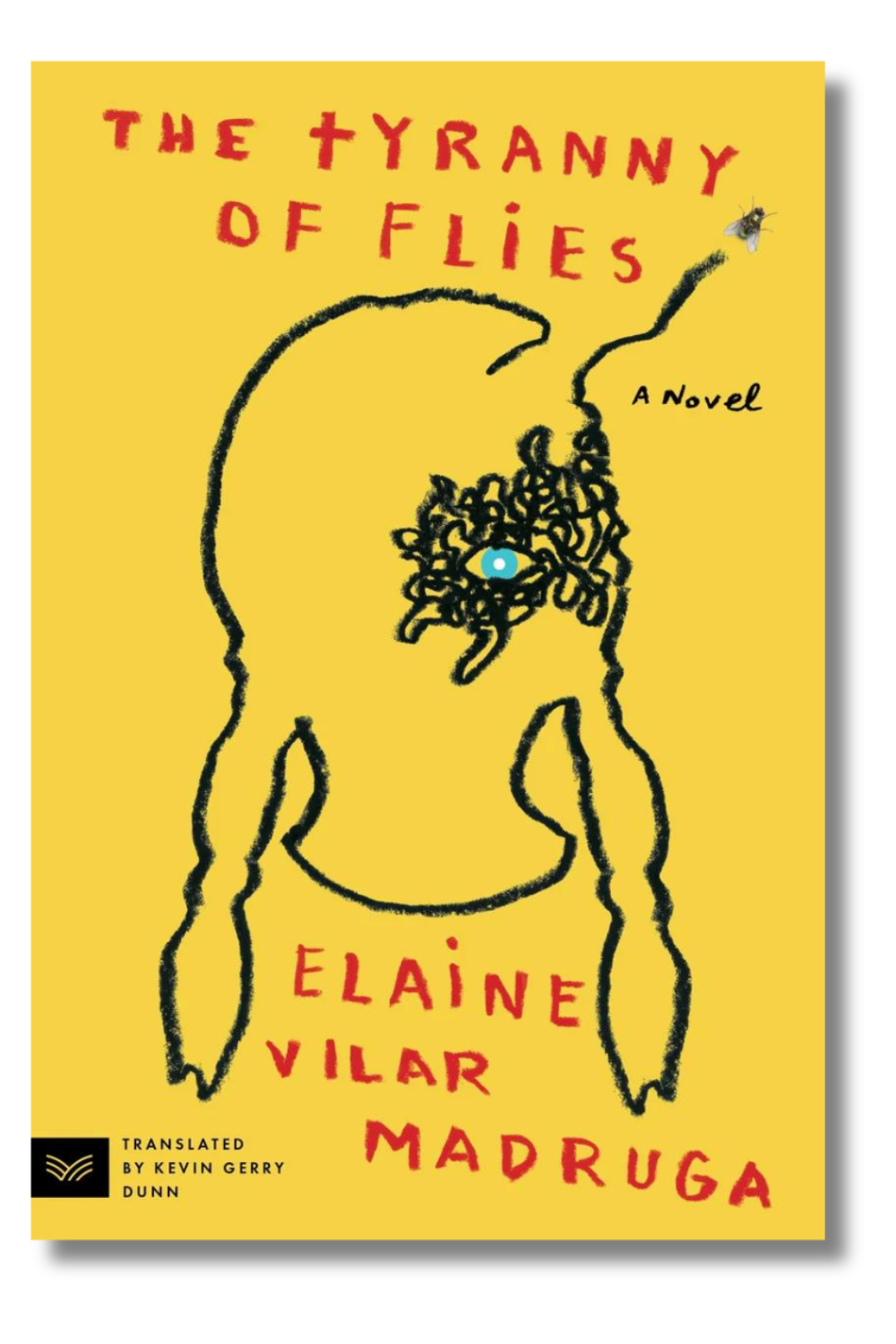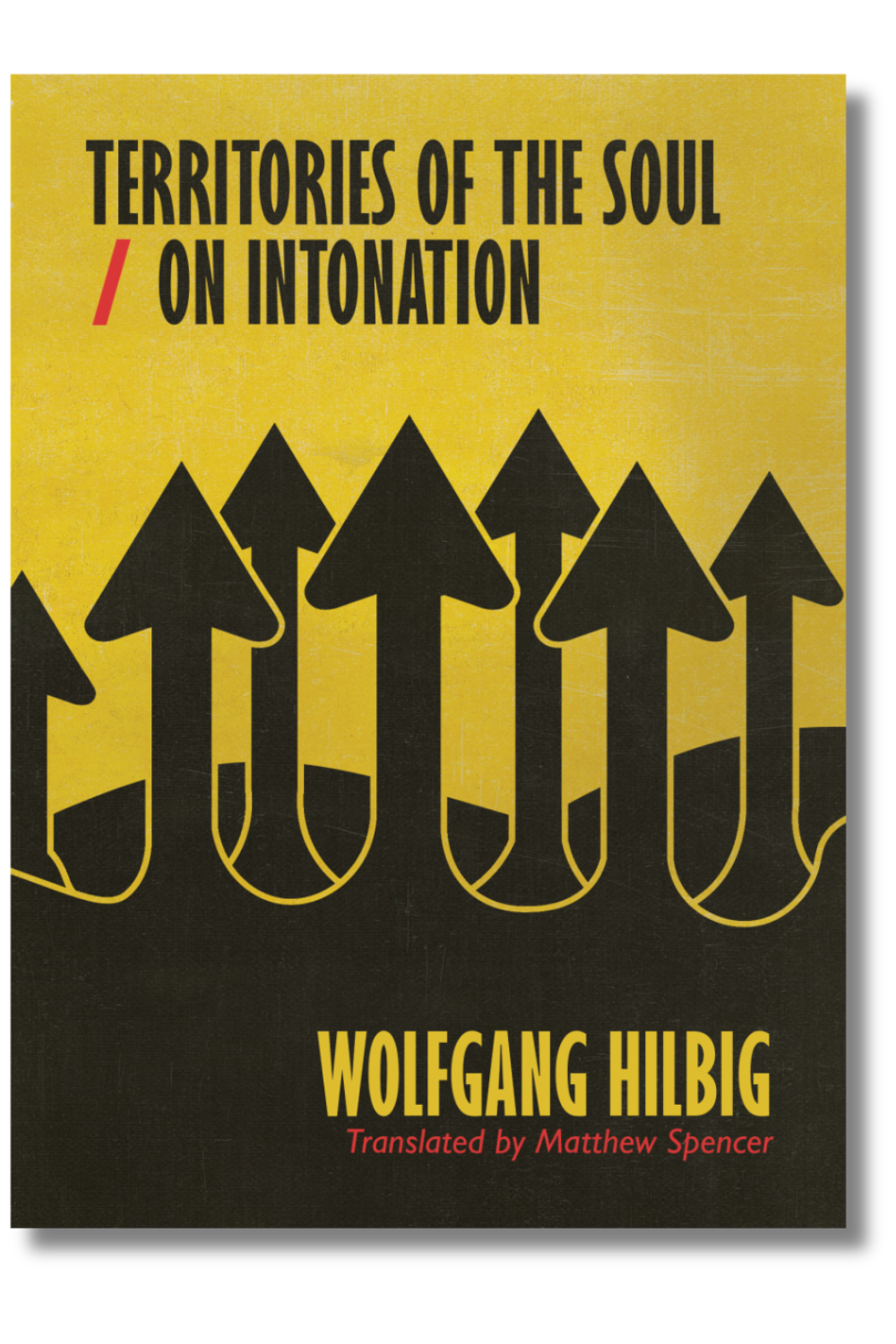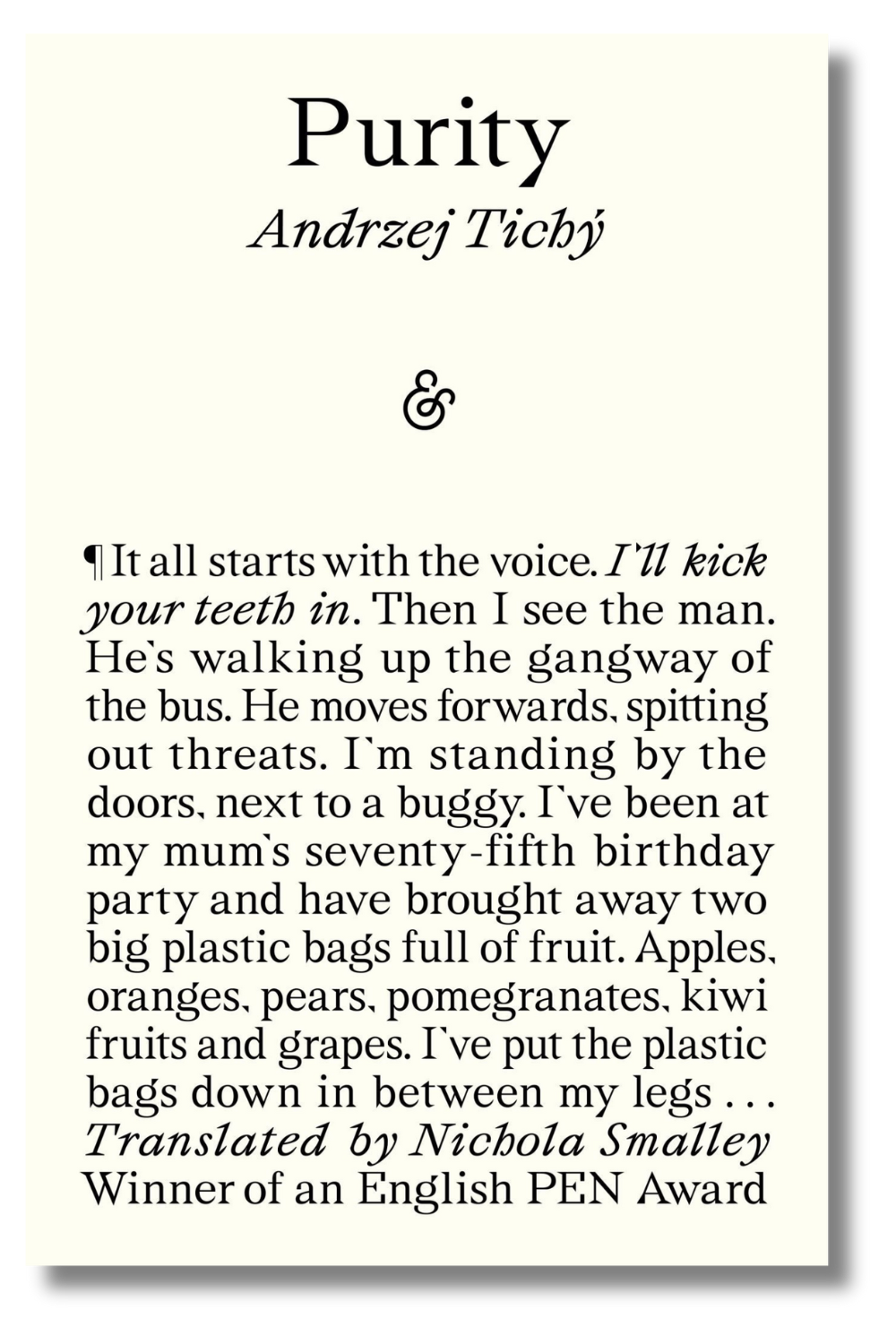From HarperVia | The Tyranny of Flies by Elaine Vilar Madruga, translated from the Spanish by Kevin Gerry Dunn | Fiction | 256 pages | ISBN 9780063330733 | US$18.99
What the publisher says: “Growing up on a Cuba-esque Caribbean island, Casandra, Calia, and Caleb endure life under two tyrannies: that of their parents, and the Island’s authoritarian dictator, Pop-Pop Mustache. Papa was the dictator’s former right-hand man. Now, he’s a political pariah and an ugly parody of a tyrant, treating his home as a nation which he rules with an iron fist.”
What Emily Tarr of the Southern Bookseller Review says: “This really took me by surprise. Incredibly funny, in a way so unique to its horror and its political and familial commentary, that it feels almost illegal to laugh but also impossible not to.”
What I say: If you can read this novel without forevermore thinking of Fidel Castro as “Pop-Pop Mustache,” you’re a stronger reader than me. In an introduction also translated by Kevin Gerry Dunn, Cristina Morales calls this novel “a fable that’s dark, slick, and salacious,” an observation with which I concur completely. And the imagery that Elaine Vilar Madruga uses throughout—especially the way insects recur, both as symbols of death and decay and as literal obstacles for the characters to navigate—lends this an even more visceral quality.
From Sublunary Editions | Territories of the Soul/On Intonation by Wolfgang Hilbig, translated from the German by Matthew Spencer | Poetry | 80 pages | ISBN 9781955190886 | US$16.00
What the publisher says: “Published during the twilight years of the GDR, these collections find the renowned East German writer grappling with tectonic changes inside and around him. Moving between lyric poetry, personal essay, and gothic horror, Territories of the Soul/On Intonation showcases Hilbig’s remarkable versatility and depth of feeling.”
What translator Matthew Spencer says: “Without nostalgia, Hilbig looks back on his youth in the mining country of Thuringia and his first halting attempts at poetry. He ruminates on the family he left behind and the disgust he feels at the shallow consumer society of the West. These are familiar subjects for Hilbig, but the compact and eclectic nature of this collection makes it stand out, and that was what drew me to these slim and substantial books . . .”
What I say: Over the last decade, anglophone readers have had the opportunity to encounter Wolfgang Hilbig’s fiction, which drips with atmosphere, a stunning sense of place, and an oppressive industrial gloom. June is a good month for Hilbig aficionados; in addition to this newly translated work, Two Lines Press is publishing Isabel Fargo Cole’s translation of Under the Neomoon. The short pieces in Territories of the Soul/On Intonation aren’t easy to describe; “prose poems” is probably the most accurate, but even that phrase feels a little lacking. And yet this also feels like the tautest distillation of a certain element of Hilbig’s prose, as quotes like this demonstrate: “it is extraordinarily reassuring to walk the neatly raked passageways between the graves while the weather is fine, then to unite the narrow paths with broad ones, and soon into the streets . . .”
From And Other Stories | Purity by Andrzej Tichý, translated from the Swedish by Nichola Smalley | Fiction | 128 pages | ISBN 9781913505981 | US$19.95
What the publisher says: “The stories in Purity take the reader through cities and suburbs, apartments and streets, to find characters struggling to survive in modern society: a man has an outburst on a bus; a fugitive finds insight in a color wheel; a social realist kills his friend with a hammer; a thief finds himself in books. And cleaners reluctantly go on cleaning.”
What Noel Gardner at Buzz says: “Purity is at its most coldly satisfying when Andrzej Tichý’s prose is at its most unexpurgated. . . . At their most unsettling, these stories—ranging in length from less than three pages to more than sixty—approach the alluring psychodramas of Dennis Cooper.”
What I say: Do you enjoy your short fiction with bleak imagery, unsettling twists, and characters discovering their capacity for antisocial behavior? Welcome to Andrzej Tichý’s Purity, then. There’s a staccato quality to some of the prose, via Nichola Smalley’s translation. Consider this, from “Strength and Unity”: “My eyes are closed. It gets dark and then it gets light. This is happening now. I’m crying. He’s laughing. We’re as one, it feels like.” It’s a highly focused look at lives in crisis and the bad decisions made to resolve them.
From Seagull Books | The Emperor by Makenzy Orcel, translated from the French by Nathan H. Dize | Fiction | 160 pages | ISBN 9781803093666 | US$21.00
What the publisher says: “Part crime fiction, part fable gone awry, The Emperor invites readers to follow the narrator’s life as he moves from the Haitian countryside to the sprawling city, learning about the corruptible nature of power in his quest for freedom.”
What David Keymer at Library Journal says: “The narrator in this novel waits in his bedroom for the police to arrest him for murder as his thoughts retreat to his childhood . . . Events don’t coalesce neatly as in a plotted novel but rather provide a Kafkaesque take on life in an unstable land as they unfold.”
What I say: The Emperor kicks off with the sound of knocking and our narrator commenting, “It’s not the police. Not yet.” It’s an almost archetypal setup, and the rest of the book turns back time to reveal how the narrator came to be a “lone, unarmed man” awaiting the arrival of the police. It’s a story of ambition and frustration, following the protagonist’s journey from humble roots to a city with wider possibilities and far more dangers on offer.

From Coach House Books | Living Things by Munir Hachemi, translated from the Spanish by Julia Sanches | Fiction | 128 pages | ISBN 9781552454770 | US$22.95
What the publisher says: “Living Things follows four recent graduates—Munir, G, Ernesto, and Álex—who travel from Madrid to the south of France to work the grape harvest. Except things don’t go as planned: they end up working on an industrial chicken farm and living in a campground, where a general sense of menace takes hold.”
What Rob Doyle at The New York Times says: “Hachemi’s is the sort of writing that compulsively interrogates itself as writing, in which literary theorizing runs alongside the storytelling. The chapters are named after novels, and the offhand prose, translated by Julia Sanches, bristles with bookish name-dropping and the kind of brash, blanket disparagement of other writers befitting an angry young man.”
What I say: Can a novel walk the thin line between puckishness and tragedy? There’s a borderline-metafictional quality to Living Things, including a narrator commenting repeatedly on the nature of fiction and the difference between it and reality. (To wit: “reality—unlike a life story—doesn’t have to conform to the narrative demands of readers.”) Even as it builds up this divide, it also embraces its contradictions, playing with structure and tonal shifts. “I’m not your average narrator,” the narrator states at one point—and this novel is stronger for it.
Looking for more reading suggestions? Check out Tobias Carroll’s recommendations from last month.
Disclosure: Words Without Borders is an affiliate of Bookshop.org and will earn a commission if you use the links above to make a purchase.
Copyright © 2024 by Tobias Carroll. All rights reserved.















